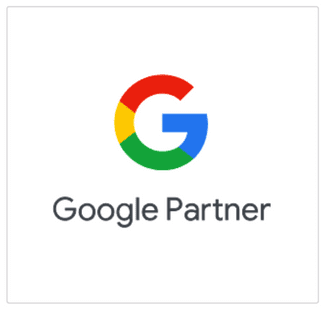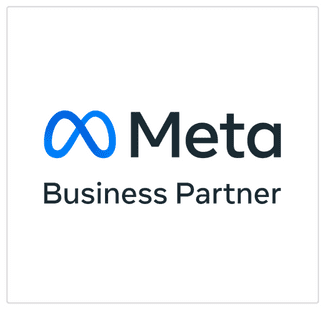Have you ever felt overwhelmed by all the SEO-related terms and jargon you come across every day? Well, you’re not the only one. The world of search engine optimization (SEO) has its own unique set of terminology, definitions and abbreviations. Like any specialist industry, SEO can seem like a vast and complex territory, but don’t worry, we’re here to break down the language and give you a clearer picture.
As you move forward in this digital world, terms like “YES,” “PA,” “TB,” “QB,” and others might seem like secret code. However, understanding these abbreviations and definitions is essential to successfully navigating the SEO universe and improving your online presence.
In this article, we explore 9 key SEO terms that will help you become a master of search engine optimization. Whether you’re an online entrepreneur, a digital marketer or simply curious to learn, this journey into the world of SEO will give you the tools you need to face the challenges and make the most of your business’ online potential. Let’s get started!
DA (Domain Authority)
One of the key terms you need to understand in SEO is “Domain Authority” or, for short, “DA.” This concept is essential for evaluating and ranking a website in search engines. But how is Domain Authority calculated and what does it mean for your website? Let’s start at the beginning.
What is Domain Authority (DA)?
Domain Authority is a measure of the authority of a web domain on a scale of 1 to 100, where 1 represents the lowest authority, while 100 indicates the highest authority. This indicator is calculated using an algorithm developed by MOZ, a company specialising in search engine analysis and optimisation.
In other words, DA represents a “score” that your website receives based on how “strong” it is in terms of authority in the online world. The higher the DA score, the more authority your website has and the better chance it has of ranking higher in search engine results.
PA (Page Authority)
In the SEO world, the abbreviation “PA” stands for “Page Authority.” Like Domain Authority (DA), this indicator is developed and used by MOZ to measure the authority level of a specific web page. Although PA and DA have similar concepts, they focus on two different entities.
What is Page Authority (PA)?
Page Authority, or Page Authority, is a measure of the authority of an individual web page on a scale of 1 to 100. This metric evaluates how well a page ranks in search engines based on its content and relevance. In other words, PA indicates how influential and visible a particular page is in the online world.
While Domain Authority (DA) focuses on the overall strength of an entire domain, PA refers to the specific strength of a web page. This means that while DA may be influenced by the age of the domain and the total number of backlinks, PA is more oriented towards the content and relevance of the page itself.
TB (Total Backlinks)
“TB” stands for “Total Backlinks” or “Total Backlinks.” This term refers to the total number of links (backlinks) that lead to a specific website or page. The concept of backlinks is one of the most fundamental and crucial elements in evaluating the authority and relevance of a website online.
The number of backlinks to a website can be a significant indicator of its influence and popularity on the internet. The more backlinks a website has from other websites, the more likely it is to be considered reliable and quality content in the eyes of search engines.
However, it is important to emphasize that it is not only the quantity of backlinks that matters, but also their quality. High-quality backlinks come from websites with authority and relevance in your field. They have a greater influence on authority and search engine rankings.
On the other hand, low-quality or spammy backlinks can have a negative impact on your website’s online reputation and can lead to lower search rankings. It is therefore essential to build a network of high quality backlinks, relevant to your content and your field of activity.
QB (Quality Backlinks)
As mentioned above the quality of backlinks is more important than their quantity.
The more qualitative a backlink is, the more it contributes to increasing the authority of your website and to improving your search engine rankings. But what makes a backlink “quality”?
Characteristics of Quality Backlinks:
Relevance: Backlinks should come from sites that are relevant to your content and field. A link from a site with the same topic is more valuable than one from a completely different site.
Source Site Authority: Sites with a higher authority in their field are more valuable in terms of backlinks. A link from a well-known and trusted site has a greater impact than one from a site with low authority.
Nofollow vs. Dofollow: Links can be either “dofollow,” or “nofollow.” Dofollow links convey authority and value from the source to the destination, while nofollow links do not to the same extent. However, both types can have value, and a healthy combination of both is often ideal.
PQ (Page Quality)
PQ, or Page Quality, is an essential term in the SEO world and refers to the quality of the individual web page. This concept takes into account numerous factors, including the number and quality of backlinks, to assess how relevant and authoritative a particular page is within a website. PQ focuses on the content, structure and value that a page provides, both for search engines and users.
Page Quality plays an essential role in the ranking of pages in search engines. Pages with higher quality are more likely to rank higher in search results, because search engines want to provide users with the most relevant and reliable information.
MT (Moz Trust)
MT, or Moz Trust, is a measure of the level of trust associated with a website. Similar to Moz Rank, this metric is based on the number of visitors that visit your website. The more trust your site gets from users and other sites, the higher your Moz Trust score will be. It’s important for building and maintaining your site’s online reputation, which can have a significant impact on its authority and search engine rankings.
SS (Spam Score)
Spam Score, known by its abbreviation “SS,” is a metric that measures the level of “spam” associated with a website. Spam in this context refers to undesirable practices or tactics that violate the rules and standards imposed by search engines. Spam score is an indicator of the quality and integrity of a website and can influence its ranking in search results.
Factors that Influence Spam Score (SS):
Content copying: If your website contains duplicate or plagiarized content, this can contribute to a higher spam score. Search engines prefer original content and value sites that provide it.
Suspicious or low-quality links: Backlinks to your site can also affect your spam score. Low-quality links or links from suspicious sources can raise questions about the quality of your site.
Unethical SEO practices: Using unethical SEO tactics, such as excessive keyword stuffing, text hiding or other methods that attempt to manipulate search results, can lead to increased Spam scores.
Previous penalties: If your site has been previously penalized by search engines for unethical practices or irregularities, this can negatively impact your Spam score.
This spam score has 3 levels, namely Mild (1-30%), Medium (31-60%) and High (61-100%).
MR (Moz Rank)
Moz Rank, which is almost similar to Moz Trust, is meant to assess the popularity level of a website, which is calculated based on the number of visitors to your website.
This indicator is developed by Moz and is based on the concept of “link equity” or “link juice.” In other words, MozRank measures how much power or influence the links (backlinks) leading to your website have.
MozRank is presented on a scale from 0 to 10, where 0 is the lowest value and 10 is the highest. The aim is to show how important and influential a web page is compared to other pages on the internet. The higher the MozRank value, the more relevant the page is considered to be.
OS (On-Page and Off-Page)
OS, or On-Page and Off-Page Score, is an essential concept in SEO, which refers to the quality of content, articles and all aspects of your website. This score is an evaluation of the activities carried out both on the pages of your website (On-Page) and off-page (Off-Page) in search engine optimization efforts.
To improve OS, it is crucial to take a holistic approach to website optimization. This means providing quality content, effectively managing backlinks, actively participating in the online community and maintaining a positive online reputation.
Understanding these SEO abbreviations and terms is vital to optimise your website and promote it successfully in online searches. We are aware that this area can seem complicated, but with the help of this guide, we hope you have gained a clearer perspective on key SEO concepts.
However, if you feel overwhelmed or simply want to get faster and more effective results in SEO, remember that our team of experts at re7consulting is always here to support you. We are here to provide you with the highest quality search engine optimization services and guide you to online success.







